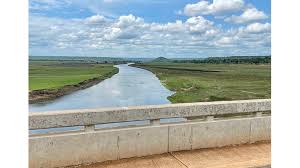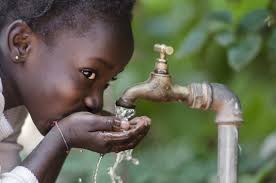Kigoma, Tanzania – The Tanzanian government has banned the use of water from the Malagarasi River following the sudden deaths of dozens of wild and domestic animals along its banks, sparking fears of contamination.
The Ministry of Water and the Ministry of Livestock issued the joint directive on Friday, warning residents in Kigoma Region and surrounding areas not to use the river for drinking, cooking, bathing, or livestock watering until investigations are complete.
Local leaders reported that cattle, goats, hippos, and several bird species were found dead earlier this week near the river, one of the largest in western Tanzania and a key source of water for thousands of households.
“This is a serious public health risk. We have dispatched a multi-agency team including veterinary officers, environmental scientists, and health experts to collect water and soil samples for urgent testing,” said Minister for Water Jumaa Aweso.
Preliminary assessments suggest possible chemical contamination, industrial waste leakage, or a toxic algal bloom, but authorities say it is too early to confirm the cause.
The ban affects fishing activities, irrigation, and human consumption, with officials advising residents to rely on alternative water sources such as boreholes and rainwater harvesting.
Wildlife officials are also monitoring possible ecological impact as the Malagarasi River flows into Lake Tanganyika, a major water body shared by four countries.
Environmentalists have called for a swift, transparent investigation and long-term solutions to protect water resources from industrial pollution, which has been on the rise in the region.
“Malagarasi is not just a river — it is a lifeline for people, animals, and agriculture. Any contamination here can have devastating effects downstream,” said Dr. Fatma Mkwizu, an environmental scientist at the University of Dar es Salaam.
Residents have expressed concern over the ban’s impact on their livelihoods, especially farmers who depend on the river for irrigation. The government has promised to provide emergency water supply through tankers until the situation is resolved.



